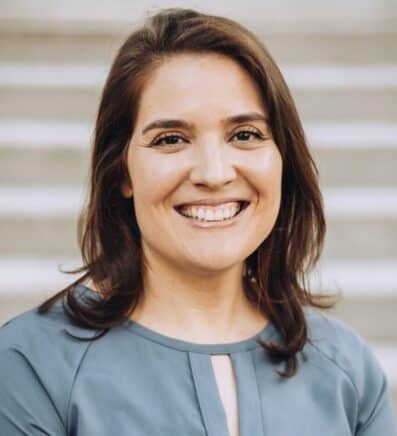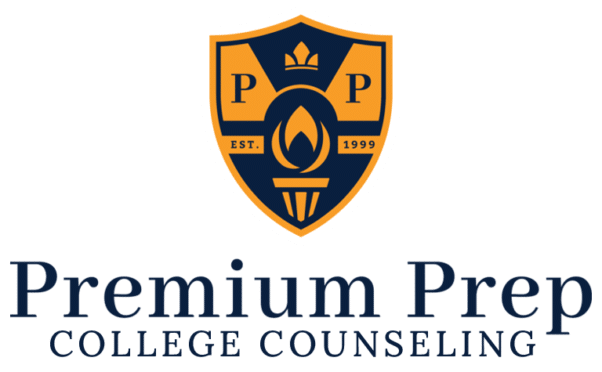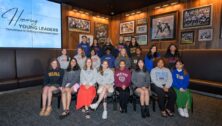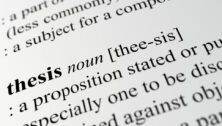Finding Your Voice: Tips for a Memorable College Essay

Despite the discussions around AI, the college essay isn’t going anywhere anytime soon; nothing can replace the authenticity and humanity of an honest student voice. The essay is the primary way for applicants to speak directly to admissions officers, showcase their distinctive qualities and experiences, and make a case for why they belong at a particular school. Not an easy task when you consider that admissions officers are reading up to 50 applications a day!
Tackling the essay can feel overwhelming, but taking the process seriously can have benefits that extend far beyond college admissions. When students take the time to look inward and capture a story that truly represents their individuality, many end up learning important truths about themselves.
So where do you start? Here are my tips for a successful personal statement:
Dispel the Misconceptions
Before you can figure out what you’re writing about, you first need to discount the common myths about the essay:
- It’s not a list of accomplishments. Save that for the activities and honors sections of the application.
- It’s not about college goals. Avoid using your essay to explain why you want to attend a particular college. Save that for supplemental essays.
- It’s not an academic essay. Feel free to use informal language and get creative.
- It’s not a trauma competition. Some of the brightest, most interesting essays we’ve read have been lighthearted and narrowly focused. The key is authenticity and choosing a topic that matters to you.
Don’t procrastinate
Beginning the writing process early has many benefits. It enables you to calmly explore your options, allows for breaks between drafts, and leaves room for revision. How, you might ask, does one get started? At Premium Prep, our students use brainstorming exercises to generate potential themes and topics, followed by “freewrites,” in which they develop some of those topics to see what sticks. This technique often opens up creative or unexpected lines of thought.
Write about what feels true to you
The most daunting part of the personal statement is often the selection of a topic. Most high school students have not written much about themselves and are inexperienced with short-form essays. Applicants feel the added pressure of needing to say something profound in so few words. (Most colleges limit it to 650 words.)
At Premium Prep, we advise our students to at least initially ignore the list of topics that others will tell you are off limits — e.g., sports, family tragedies, pets, etc. Colleges aren’t looking for any particular set of topics; nor do they automatically reject those that have been done before. Frankly, most teenagers haven’t discovered a cure or performed on Broadway. I often advise students to think “small.” Sometimes the poignancy of a transient moment can most effectively convey a larger message. We’ve read brilliant essays on avocados, water bottles, and socks — to name just a few.
Show self-awareness
Along with those topics that might seem off-limits, students are sometimes hesitant to write about experiences of vulnerability. And yet those moments can reveal worthy character qualities like compassion, sensitivity, and determination. Often the strongest essays chronicle growth through failure. Even if you’re writing about an impressive accomplishment, it’s a good idea to “humanize” your story by sharing an experience of difficulty or doubt. It takes confidence to admit to moments of vulnerability and to do so gracefully (maybe even with some humor). There’s something fundamentally relatable about a personal statement that includes this quality, and that kind of connection can set you apart.
Get your reader’s attention fast
Once you’ve found your topic, you’ll want to create an opening that grabs the reader’s attention. However, this advice is not a license to be outrageous or overly dramatic. An over-the-top opening can make your readers roll their eyes, or at least make the rest of the essay fall flat.
Keep them reading
Unlike a school essay, there’s no need to state your thesis upfront. The personal statement can take many different forms, from linear narrative to montage-like structure, but whatever style you choose, it should have a distinct arc that conveys a bright future. You’ll want to find ways to keep your reader engaged throughout.
Use your own voice
All the basic rules of good writing apply here: choose your words carefully, don’t repeat yourself, avoid clichés, etc. In addition, colleges want to hear your voice in clear and compelling ways. Don’t feel pressure to sound more mature or more “intellectual” than you are. If your language seems inauthentic, you will come across that way.
Edit
Make sure you leave time before your application deadlines to let the essay “rest” a bit, read it over with fresh eyes, and make corrections. It is also extremely advisable to have someone you trust read your essay and provide honest feedback. Also, make sure to double-check for obvious grammatical or spelling mistakes. Basic writing errors make you seem careless.
Take advantage of the assignment
Remember, this is your chance to show the admissions committee who you are. Use it as an opportunity for growth and discovery. All of the lessons learned through the process of writing help set up students for success in college and beyond.
To see an example of a real essay with expert commentary, click here. When you’re ready to get personalized guidance on your college applications, schedule a free consultation with one of our experienced counselors.
____________________

Michelle Adelman is Senior Director and Head Writing Specialist at Premium Prep College Counseling. She has extensive experience teaching writing and literature at the college and high school levels. She was an instructor and writing center consultant at Columbia University and the Cooper Union in New York, as well as an English teacher and Senior Class Dean at Francis Parker School in San Diego. Adelman is also a published author — her first novel, Piece of Mind, was published by Norton in 2016 — and has worked as a professional editor and reporter at various magazines.
Connect With Your Community
Subscribe to stay informed!
"*" indicates required fields
















![95000-1023_ACJ_BannerAd[1]](https://vista.today/wp-content/uploads/2023/03/95000-1023_ACJ_BannerAd1.jpg)




































